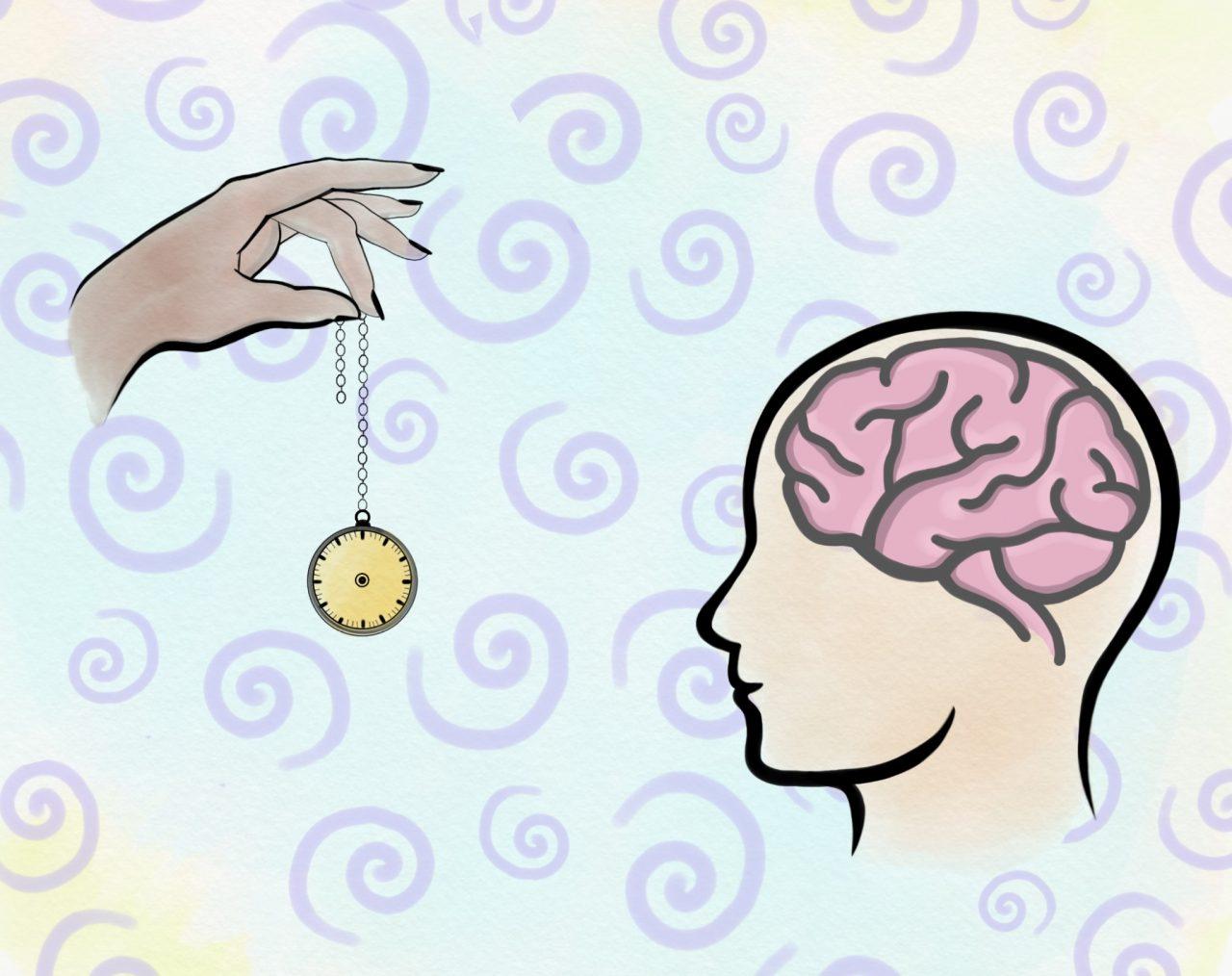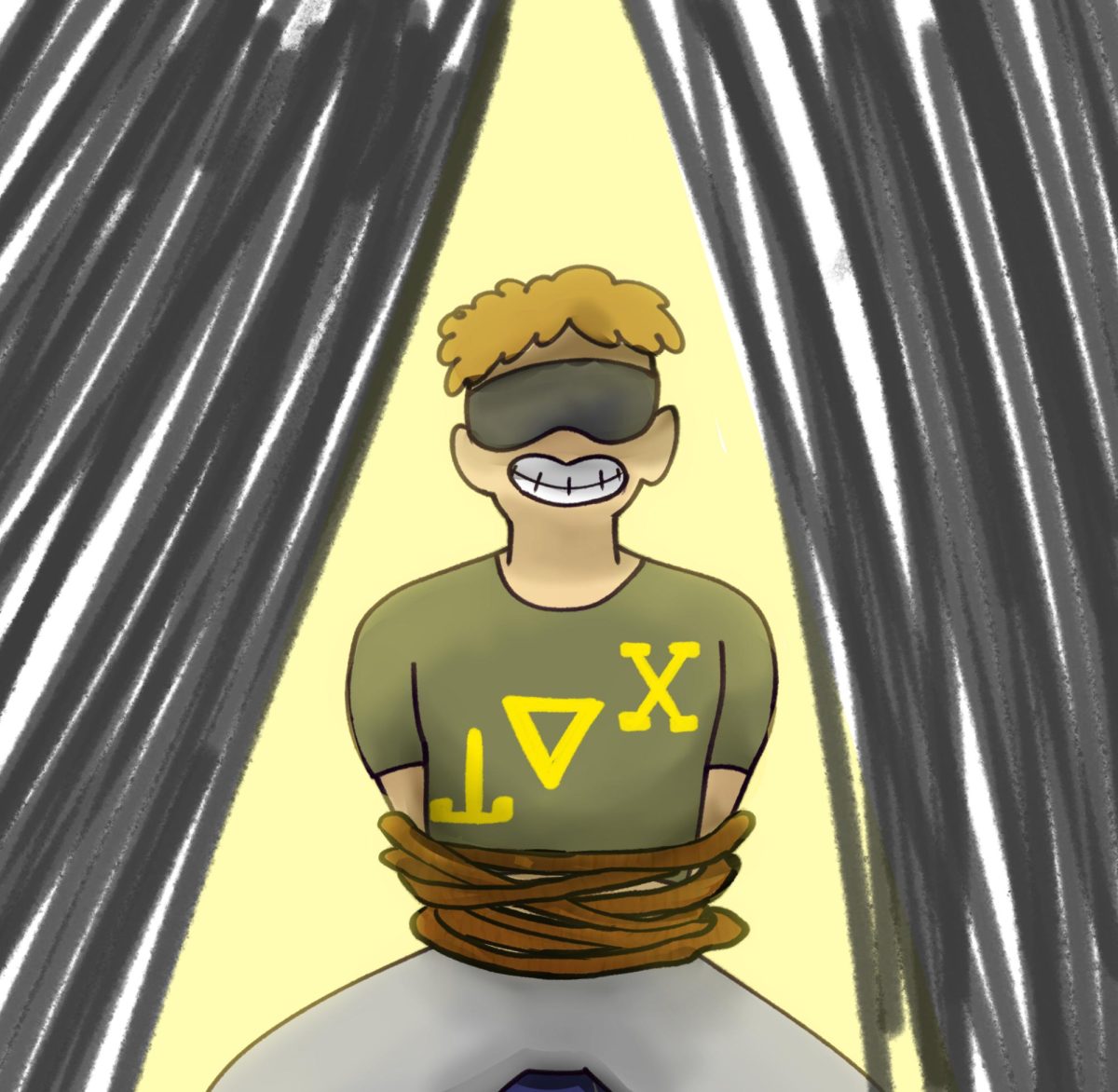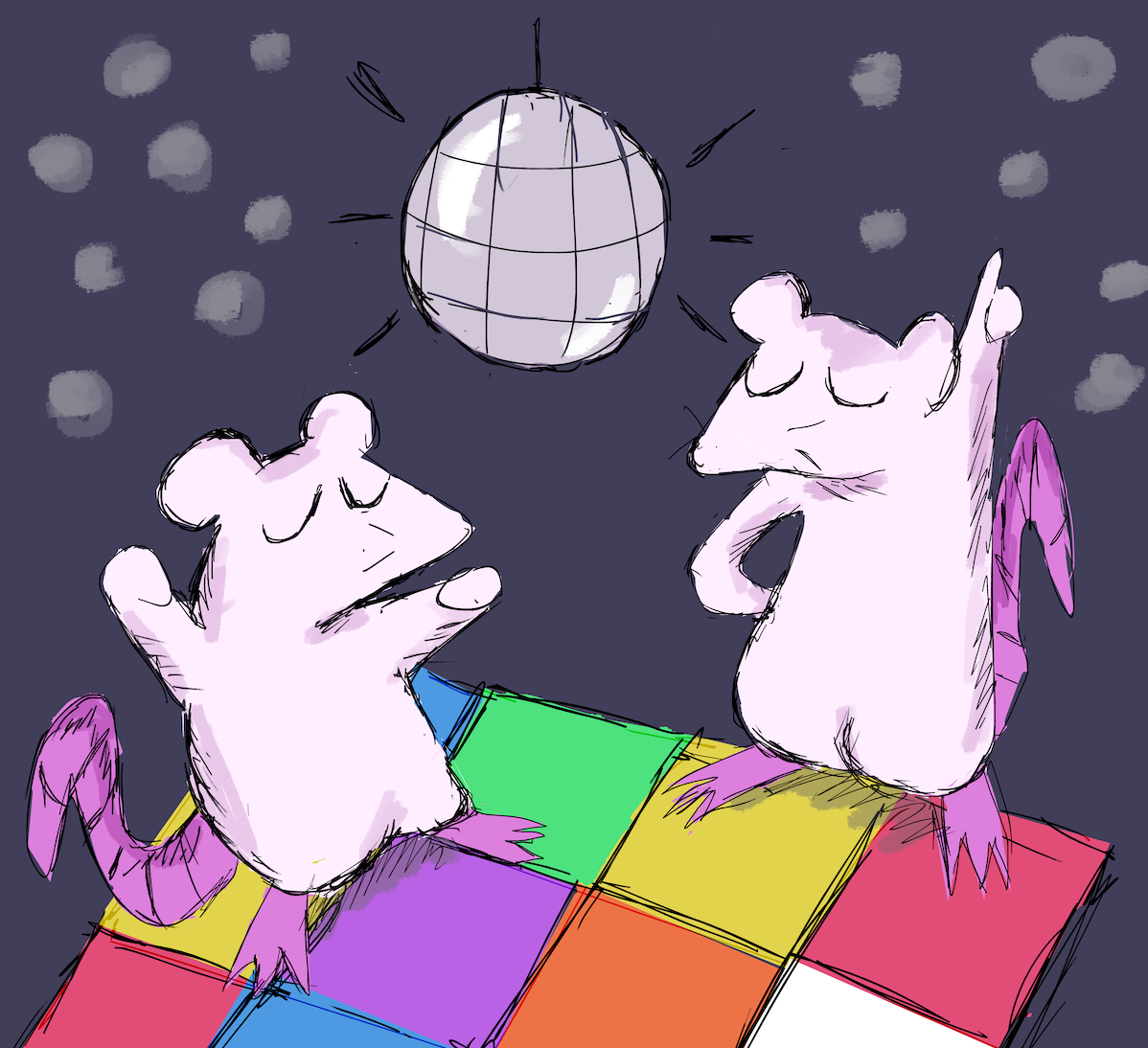Illustration by Genevieve Humphreys
On March 1, Trinity hosted interactive comedy hypnotist Erick Känd. Känd’s website claims that he manufactures a “hypnotic trance state [that] creates a sense of heightened awareness.” Although I was unable to attend, I saw several videos and heard various accounts. At one point, Känd convinced the hypnotized volunteers that they had each just found a puppy under their chairs. The delighted volunteers immediately began petting their new “puppy,” seemingly unaware that they were touching nothing but empty air.
As a neuroscience student, I was fascinated by the prospect of hypnosis and immediately had questions. How exactly does hypnosis work on the brain? Why does it seem to work on some people, but not others? Was the mind, as in the case of the puppy, somehow so convinced the dog was there that it conjured up a hallucination the eyes then believed to be real? Or were the vision centers simply overridden somehow by the power of suggestion? And most importantly, could the evil pantsuit lady from “Incredibles 2” really have controlled everyone so completely via swirly rave goggles?
In my search for answers, even after digging into the darkest corners of Google scholar, I found that much research remains to be done on the neuroscience of hypnosis. Numerous studies have been done on the observed effects of hypnosis — psychotherapy, pain management, etc. — but as to what truly occurs during a hypnotic “trance” is still unknown, due largely to how difficult it is to study a state that not everyone can even enter.
The studies that have been done on what goes on in the brain during hypnosis tend to agree on one thing: that hypnosis is all about attention, meaning that entire areas of the brain aren’t suddenly shut down, but rather that attention centers of the brain enter into a more activated state. A 2005 study found that a brain region involved in attention allocation (the anterior cingulate cortex) was more active during hypnosis in people more susceptible to hypnosis, meaning that a person’s frontal attention system may affect whether they are able to be hypnotized or not. Additionally, the same study found that while in a hypnotic state, the brain systems monitoring conflict and control processes were dissociated. This means that during the trance, a person would have less control over their actions and thus do something they might not normally do. The heightened level of suggestibility observed in hypnotized individuals is likely a result of this loss of control, making a normally shy person not think twice about doing the chicken dance in front of an audience.
As for whether the participants really saw a puppy, scientists are still not sure. A 2012 study showed that brain regions involved in perception are not only activated when seeing an object, but also when imagining said object. When a color hallucination was suggested to a hypnotized individual, the brain regions involving color processing lit up. Although we do not yet know exactly how, the combination of lower activity of some brain regions — such as those involved in behavior — and higher activity of others — such as those involved in attention or perception — seems to result in a psychological state that leaves the subject extremely convinced that what is suggested is real.
As for the villain in “Incredibles 2,” I remain unconvinced that world domination is possible through hypnosis. However, the research that has been done so far lends itself to the idea that hypnosis is a unique mental state, with a growing neurological backing, although much more still remains to be discovered.







markgil • Sep 16, 2019 at 5:22 am
hypnosis is an extremely frightening state of mind. i would certainly never want to become manipulated & confused enough to be made to forget my own name, not be able to move my own body, read or understand english or even to not be able to recognize my own face in a mirror.
rather than somehow being beneficial or entertaining i think hypnosis makes one vulnerable and unable to function rationally in reality. watching people under hypnosis forced to act like irrational fools is quite upsetting and i imagine they are all very embarrassed after they wake up and realize what they were made to do.